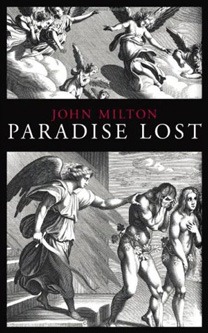 Gmail is finding smarter ways to keep spam out of your inbox (Mashable)
Gmail is finding smarter ways to keep spam out of your inbox (Mashable)
In 2012 Gmail missed 1% of spam messages, according to Google. Now, it only misses 0.1% of spam and only 0.05% of email ends up in the spam folder when it shouldn’t, but the company thinks it can improve on those figures.
The TeleRead Take: Seriously, who likes spam? I personally double-filter my email stream, running it through SpamAssassin on a Linux box before forwarding it to Gmail. Given that I’ve had the same email address for almost 20 years, it’s on all the spam lists by now. I do have to admit, Gmail’s gotten better lately about taking care of the spam that SA doesn’t catch, and now I see why. Maybe someday I’ll be able to drop my SpamAssassin instance.
Google Files AI Patents (I Programmer)
Google has just revealed the fact that it has applied for at least six patents on fundamental neural network and AI. This isn’t good for academic research or for the development of AI by companies.
The TeleRead Take: The “obvious patent” is a long-standing bugaboo, especially where software is concerned. These patents certainly seem obvious, but it’s hard to be able to tell for sure when you’re not a computer industry professional. Something else that seems obvious is that we really need some patent reform, especially where software patents are concerned.
ALA Slams Bid to Modernize U.S. Copyright Office (Digital Book World)
The American Library Association (ALA) says a bill now up for consideration in Congress does too little to address what it sees as the issues plaguing the U.S. Copyright Office.
ALA President Courtney Young says the Copyright Office for the Digital Economy (CODE) Act doesn’t solve the issue of severe underinvestment in technological resources the agency needs to serve its mission in the digital age.
The TeleRead Take: The ALA representatives basically say that the Copyright Office’s IT infrastructure is antiquated and not up to meeting the needs of either content creators or content consumers, and the CODE Act proposal simply doesn’t address it. Which, government being government, I could certainly see being the case. The ALA basically wants Congress to support the Copyright Office transitioning from paper to digital systems, which sounds like a good idea to me. But again, government. Who knows what they’ll end up doing?
Citefast – An incredibly easy citation tool for students (Educational Technology and Mobile Learning)
Citefast is an easy to use web tool for creating citations. Students can utilize it to generate citations in different formats: APA (6th edition), MAL (7th edition), or Chicago (16th edition). The site provides a wide variety of features citation creation super easy and all for free. Some of these features include: automatic look up of journals, books and webpages; easy cut and paste and exporting to MS Word; In-text citation generator with guide and many more.
The TeleRead Take: Where was this useful tool when I was in high school and college? I doubt this is the first automatic bibliography generator, but it certainly seems dead simple. Of course, the problem with that is, the more people use these tools, the fewer people learn to create bibliographic citations from scratch. But then, as long as this tool is around, do they really need to?
The First Ever eBook? (epub Blog)
During 1964-65 Dr. Joseph Raben of Queens College, NY, digitized John Milton’s Paradise Lost (probably using “IBM punch cards”). This was a whole six years before Michael Hart wrangled his way on to a Xerox Sigma V mainframe at the UI Materials Research Lab, University of Illinois in 1971, and punch in what would become PG eText #1; The Declaration of Independence.
The TeleRead Take: This isn’t actually a new story—I first covered it back in 2011. Still, it’s worth taking another look just because the statistics are so impressive; it took in excess of 100,000 80-character punch cards to hold the whole book. And now you can download it onto your cell phone in the blink of an eye. Let’s hear it for Dr. Joseph Raben, e-book pioneer.
































